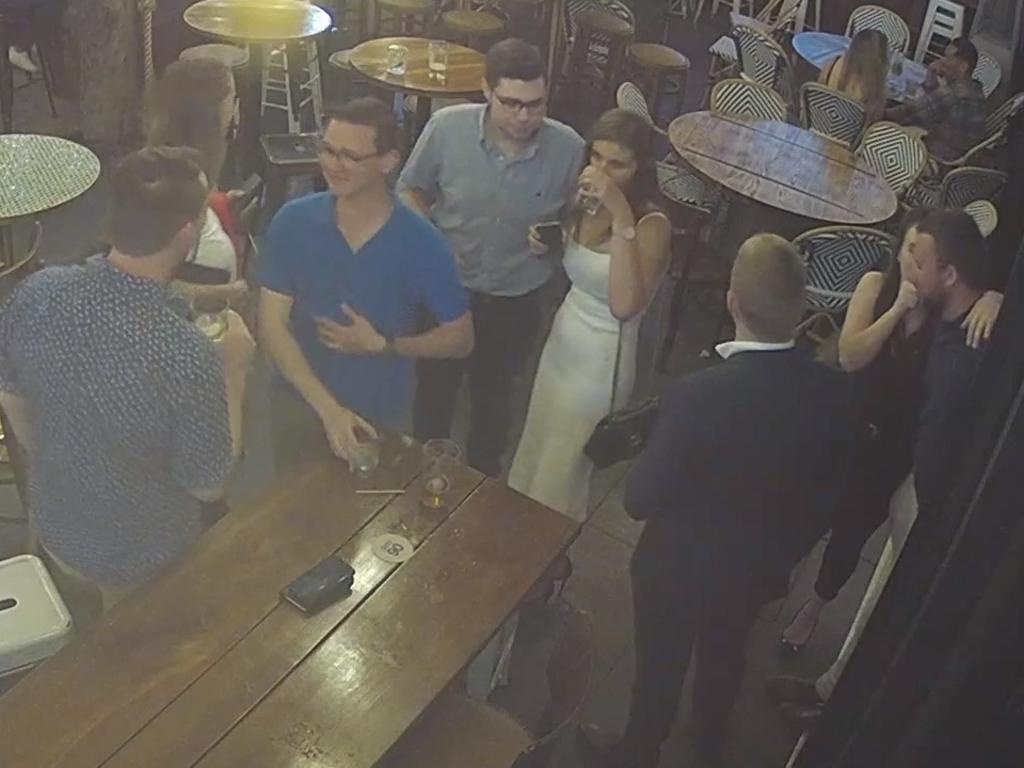Appalling rape myth Bruce Lehrmann relied on to try to win
Cocky Bruce Lehrmann and his legal team relied on one outdated myth to win their case – and it saw them spectacularly fail.
The long-awaited judgment in the defamation case brought by Bruce Lehrmann against Network 10 was delivered on Monday. Despite that Mr Lehrmann himself initiated this legal circus, his facade of lies was spectacularly dismantled brick-by-brick by Justice Michael Lee.
Justice Lee reasoned with conclusive authority that Brittany Higgins has told the substantive truth about what happened inside Parliament House in 2019. Mr Lehrmann raped her. While not a win – a young woman was still raped – this is vindication for Ms Higgins.

Justice Lee also addressed a number of myths and stereotypes about rape that have been found to be widespread in Australia. Rape myths, as they are called, are false assumptions about sexual violence, those who perpetrate it, and those who experience it. For victims, they prescribe a perfect victim, an impossible archetype.
These stereotypes have long been disproved, hence their status as myths. They are often mobilised to attack the credit of victim-survivors, and to label them as unreliable witnesses to their own rape.
In reality, victims react variously to sexual violence. Some fight back against an assault – sometimes at a risk to their life. Others freeze. Alcohol intoxication is a common circumstance in which sexual violence occurs. Rape is most likely to be perpetrated against a victim by someone known to them, such as a partner, friend or acquaintance.

Rape myths were consistently deployed (often by mainstream media) in the sometimes-systematic attacks on Ms Higgins over the past four years – the rape occurred after a night of drinking, the two were known to each other and had kissed earlier in the night, and Ms Higgins froze when she came-to and realised Mr Lehrmann was raping her.
In deciding against Mr Lehrmann, Justice Lee corrected the record on a number of these rape myths.
Justice Lee reminded us that memory might be fragmented by trauma. He confirmed that passive submission is not consent and victims do not need to fight off or resist an assault. Instead he found that Ms Higgins’ intoxication led to a state of unconsciousness that meant that, “Ms Higgins was not fully aware of her surroundings and did not consent to intercourse.”
He also found that Mr Lehrmann had weaponised Ms Higgins’ intoxication; that he “had encouraged her to drink” alcohol and “knew (she) had reduced inhibitions because she was very drunk.”
Justice Lee found that Mr Lehrmann “was aware of her condition”, that is, that she “was a very drunk 24-year-old woman, and her cognitive abilities were significantly impacted”.
In that context, Mr Lehrmann “a work colleague with more power” convinced Ms Higgins to return to Parliament House in the early hours of the morning. As Justice Lee says, “how keen” she was to do so is unclear. He found though, that this “in the end, does not really matter”, since her agreement to return to the office and her intent (if any) to have sex with Mr Lehrmann when they arrived, does not go to the issue of consent.

Instead, Justice Lee found on the evidence that Mr Lehrmann “was hellbent on having sex” with Ms Higgins. He was so “indifferent to (her) rights”, that “in his pursuit of gratification, he did not care one way or another” whether Ms Higgins consented.
The criminal rape trial against Mr Lehrmann collapsed in 2022 due to juror misconduct. The DPP elected not to pursue another trial, citing Ms Higgins’ mental health.
Mr Lehrmann has always maintained his innocence.
Justice Lee’s judgment was delivered under the civil standard of proof, which hinges on facts being proven according to “the balance of probabilities”.
A fundamental criticism of the criminal justice system’s response to sexual violence is the obsession with the actions of the victim, and the almost ignorance to the accused’s behaviour. Yet Justice Lee’s comments brought the actions of Mr Lehrmann into sharp focus.

Justice Lee outlined some of what he called “untruths” in Ms Higgins’ evidence – in line with the legal reality that not everything that is not true is a lie.
A common tactic deployed by defence barristers in rape trials is that the victim is lying, despite the statistics for false reports of rape being incredibly low. This same tactic was deployed by Mr Lehrmann’s barristers in this case.
Justice Lee, with forensic attention, outlined his reasons for dismissing the premise, grounding his decision in the reality that victims may partake in “counterintuitive behaviour” but at best this evidence is “essentially neutral”, because even taking the assumption that Ms Higgins was raped (which he later found to be the truth) her reactions post-rape do “not offend commonsense”.
He also concluded that Mr Lehrmann held no credit as a witness, and that “in important respects he told deliberate lies”. Justice Lee determined that Mr Lehrmann’s evidence could not be believed “except where it amounted to an admission”, aligned with “inherent probabilities” or was corroborated by another witness or documentary evidence. This again placed the focus on the actions of Mr Lehrmann, and his motive to lie, that is, to avoid being held accountable for rape.
The civil defamation case – operating as a quasi-rape trial – has been a public autopsy on our fatally flawed justice system. The rape myths addressed by Justice Lee in his decision continue to be raised in rape trials, police investigations, in the media and in homes across Australia. Hopefully, this considered and reasonable judgment will be a catalyst for reform to ensure that these myths are challenged in those places.
In the end, despite the mud hurled at her, Brittany Higgins has stood strong in her evidence of what happened when she and Bruce Lehrmann arrived at Parliament House. And now, the legal system agrees. To quote Justice Lee: “Mr Lehrmann raped Ms Higgins.”
Dr Rachael Burgin: Senior Lecturer in Criminal Justice at Swinburne University of Technology; CEO, Rape and Sexual Assault Research and Advocacy (RASARA)
Saxon Mullins: Survivor; Director of Advocacy, Rape and Sexual Assault Research and Advocacy (RASARA)



